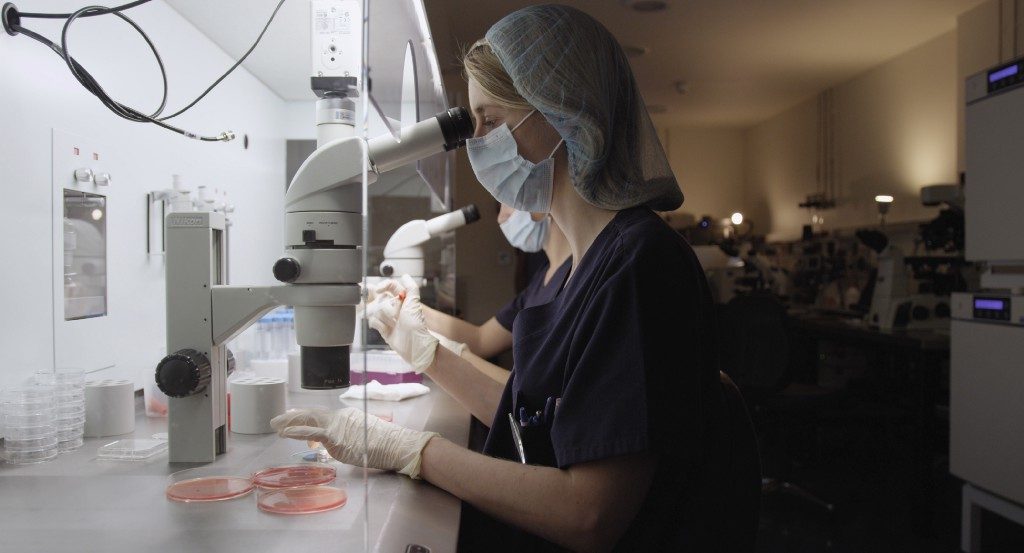Maria Arlamowsky lives and works in Vienna, Austria. She studied at the University for Music and Performing Arts Vienna, the Film Academy, and Donau University in Krems. (Press materials)
“Future Baby” will premiere at the 2016 Hot Docs Film Festival on April 30.
W&H: Describe the film for us in your own words.
MA: “Future Baby” is about science and medicine offering new answers for old cravings — namely to get children, descendants. The business of providing hope is more and more dependent on reproduction with the help of a third party — egg cells, sperm, uteri. Will the idea to get a perfect, optimized child with alien gene material be a new chance or burden for society and especially for the children?
W&H: What drew you to this story?
MA: My work always examines questions of sexuality and the use of the female body. The new possibilities to build life, like playing with Lego, are not about sex anymore; it is pure science. Medical experts need to offer gametes (germ cells) and uteri to fulfill the wishes of their clients. Pre-implantation genetic diagnosis and sex selection are all marketed to offer “better” outcomes, yet the social components involved forming these new family structures haven’t been discussed yet.
W&H: What do you want people to think about when they are leaving the theater?
MA: I want them to be confused and open to rethink their assumptions. I want them to be stimulated and ready for discussion.
W&H: What was the biggest challenge in making the film?
MA: I think the biggest challenge was to take a step back and have the players of the fertility game describe their roles and driving arguments without judging and instead trying to understand what motivates them. Another challenge was to work with my eldest son as camera operator, which brought our relationship to a working environment.
W&H: How did you get your film funded? Share some insights into how you got the film made.
MA: “Future Baby” was funded very quickly — at that time assisted reproduction, genetics, and social freezing were discussed in the media because the Austrian law for reproduction had to be revised. In Austria we have this wonderful situation that film is funded by the state. You have to write concepts and the film funding agencies which support cinema productions as a cultural product will help you.
We also needed TV stations that were willing to give money. I think it was an interesting subject at the right time.
W&H: What’s the biggest misconception about you and your work?
MA: I love artistic photography and delicate images, but I also like to talk to people. I love to read their body language — their gesturing hands, the hardening or relaxing of muscles, and contradictions between text and body language. Therefore I like to work with medium shots during seated interviews. When critics refer to “talking heads” in a snippy way I find that a big misconception — [the failure] to see the beauty of body language and medium shots.
W&H: What’s the best and worst advice you’ve received?
MA: The best: “Don’t panic — just do it.”
The worst: “Just behave like a director.” [I was being told to] become — and to behave like — the cliché of a male director.
W&H: What advice do you have for other female directors?
MA: Just do it and try to find your own way!
W&H: Name your favorite woman-directed film and why.
MA: Claire Denis’ Beau Travail. The film shows the sexuality and texture in bodies that are not only reduced to be seen as a specific gender, but can be seen as mere tools to dance, fight, or to do the ironing.







